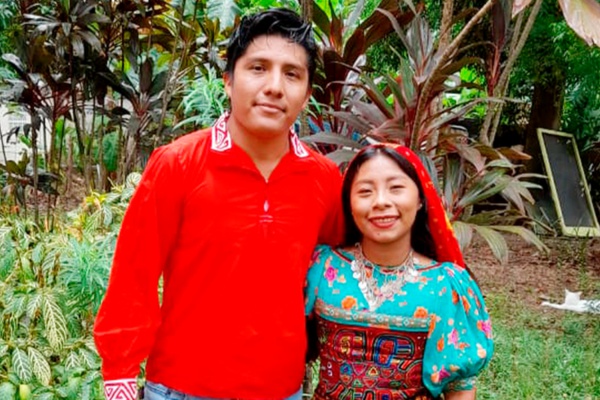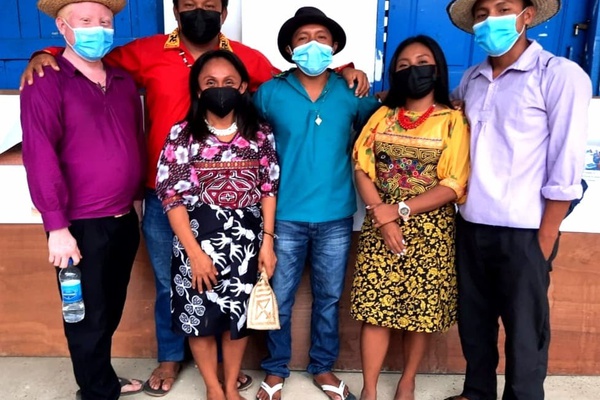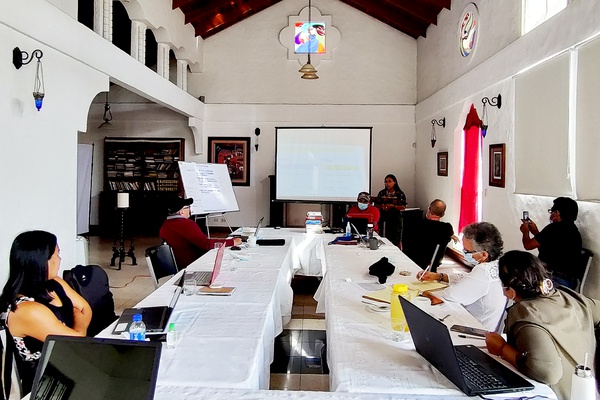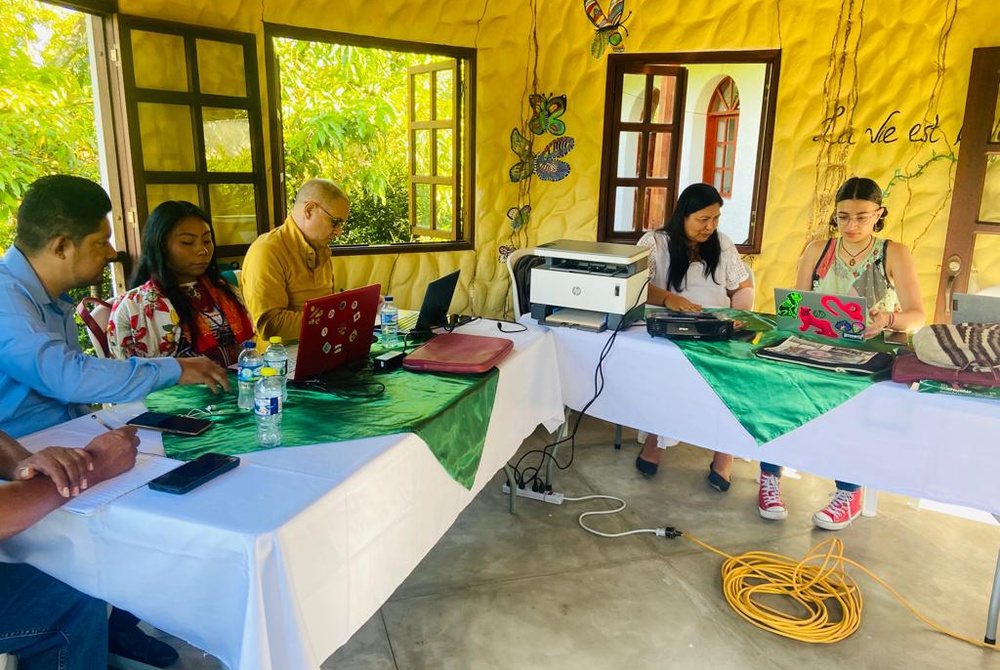
Crossing Pathways: OPIAC’s Political Development School and the Mesoamerican Leadership School Meet and Plan Joint Efforts
The Mesoamerican Leadership School and the Political Development School of the National Organization of Indigenous Peoples of the Colombian Amazonia (OPIAC as per its acronym in Spanish) shared experiences in early May 2022.
An exchange is defined as a reciprocal trade among several people, groups, or parties. Having a lot in common, the Mesoamerican Leadership School (ELM) and OPIAC’s Political Development School (EFPO) work from different parts of the world and have recently experienced an exchange of great value to both parties.
From May 3 to 6, 2022, several representatives of both organizations met to share experiences, reinforce contents in both schools, and forge collaboration channels for the short and long-term.
The Mesoamerican Leadership School is a subsection of the Mesoamerican Alliance of Peoples and Forests; it is a school of thought, a space for dialogue, of active judgment and creation of knowledge to pass from one generation to the next among community forest organizations and native peoples in Mesoamerica. Its goal is to train young women and men as humane leaders that later influence their communities.
On the other hand, OPIAC’s Political Development School aims to contribute to the defense of the life, autonomy, and territories of the indigenous peoples of the Colombian Amazonia, through comprehensive training of native leaders focused on having influence, political participation, and effective enjoynativement of their individual and collective rights.
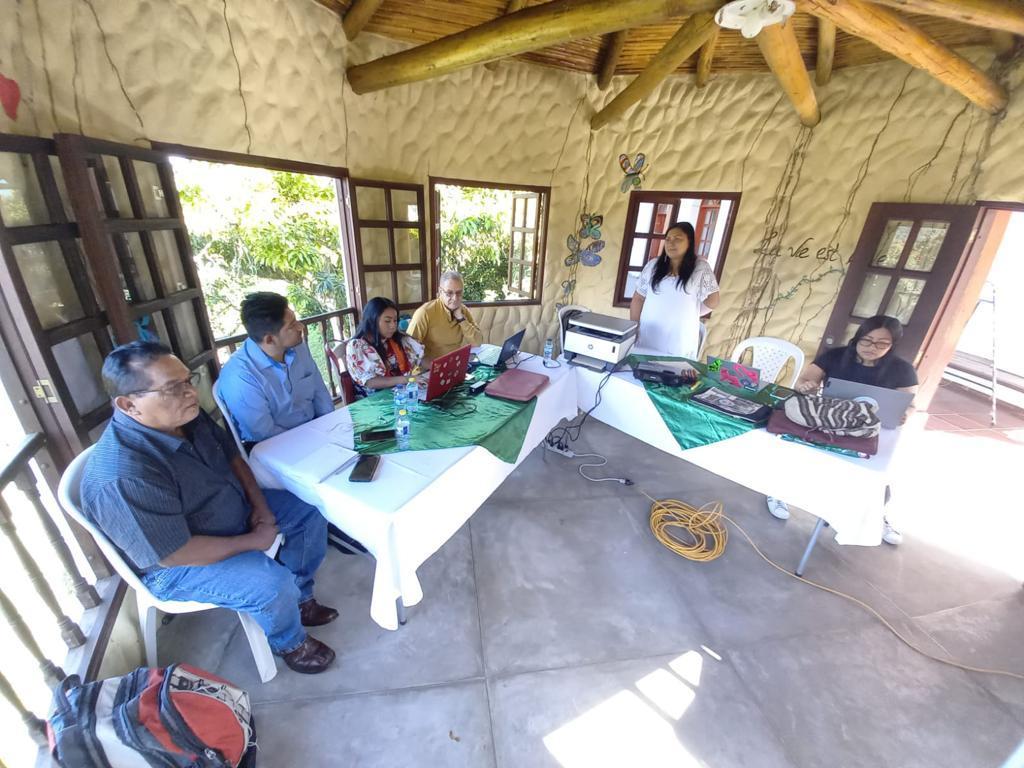
Opening of the exchange session by Marbe Luz Becerra Suarez - Education Coordinator at OPIAC
As seen in their definitions and objectives, but also in the practice: Both Schools share the fact that they don’t have walls; meaning that, unlike other traditional schools, these don´t have a building and are not located in one single place, but they are itinerant. They move from one community to the next. Another aspect in common is that their pedagogical model is based on native, communal knowledge.
Pathways crossing: Both Schools work to fix problems in common like preserving indigenous cultures and obtaining more support from the government. In addition, they both work with similar concepts at their core, for example, the concepts of collectivity, territory, interculturality, and community.
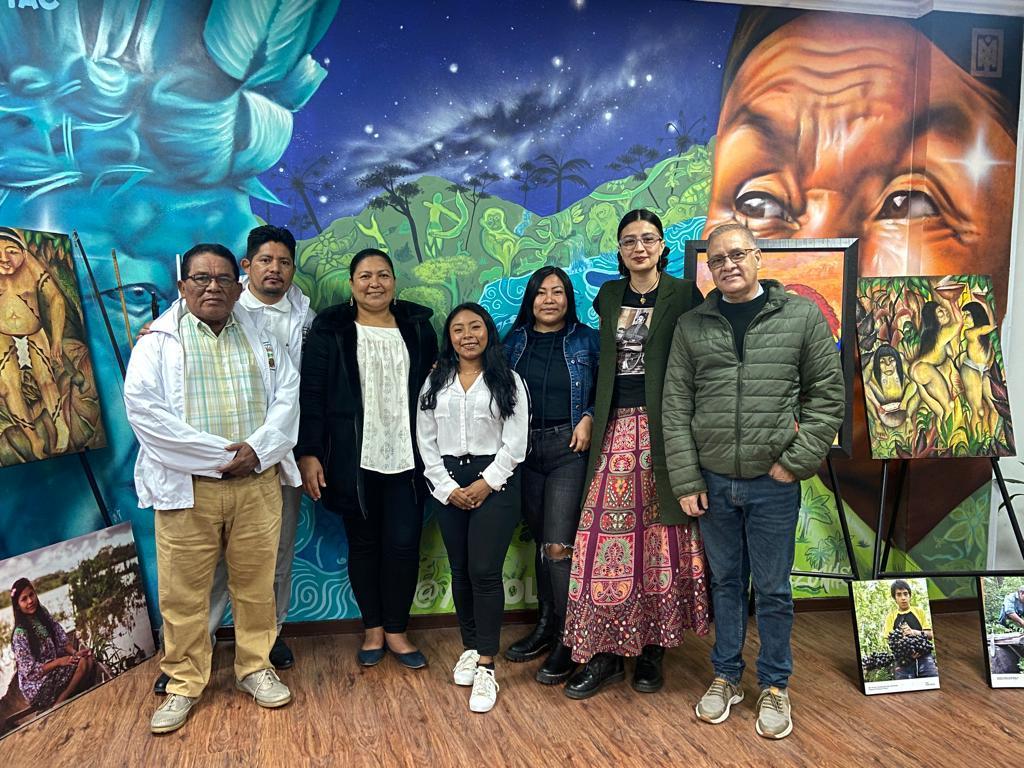
Representatives from EML and EFPO at OPIAC’s facilities.
This exchange helps both Schools to reach agreements and to plan joint activities; among them: a forum on their influence in decision making spaces and public politics, an exchange of experiences about the pedagogic model of both schools, round tables on specific topics like their native education and considerations on how to establish a formal institution for indigenous education.
In addition, they aim to offer Latin American native indigenous education, develop teaching modules about intercultural education, and promote a Latin American conference of native education. The different agreements were documented in a letter of understanding concerning the collaboration between both schools.
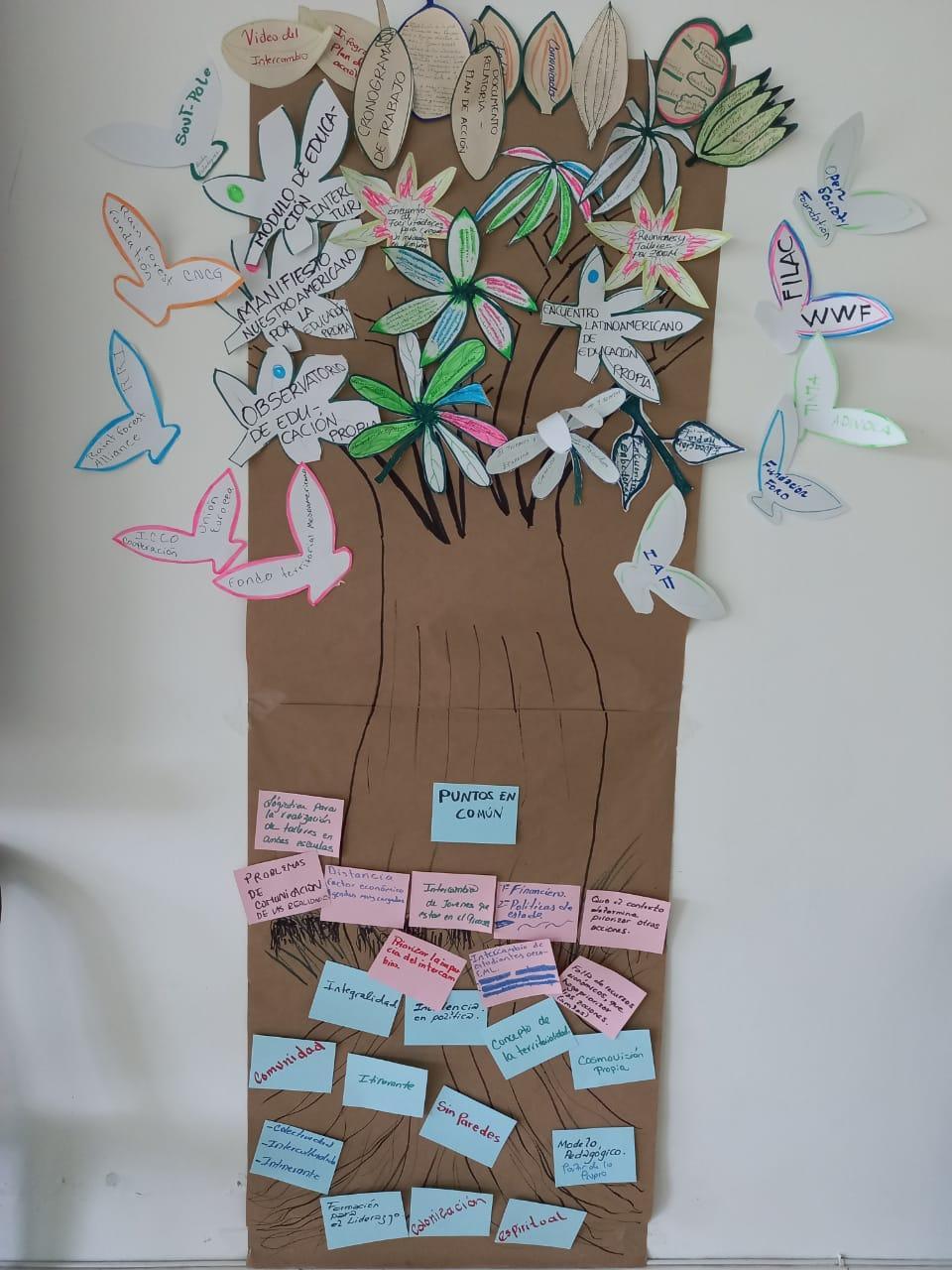
Action plan shaped like a tree: The roots are the initiatives in common and, colored in pink, the risks that may prevent them from developing those initiatives.
Representatives of EML that took part in this exchange returned home motivated by the experience and its future potential. They highlight key learnings to apply to the work done in communities, but this exchange between schools also brings to light many common struggles, like working for intercultural indigenous processes and reaching new positions of leadership to preserve ancestral knowledge.
